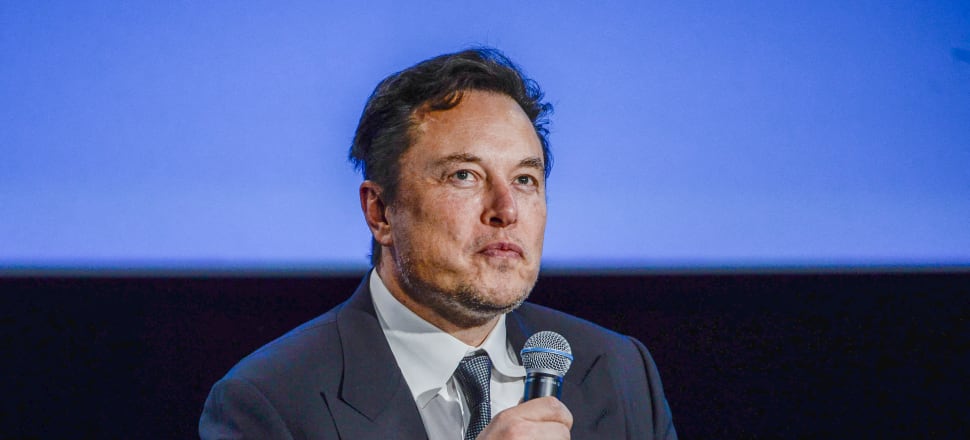
Terms like 'mainstream media' have become highly politicised. To build trust, we need to change how we talk about news media, writes Dr Merja Myllylahti.
Comment: When Twitter owner Elon Musk labels publicly funded independent broadcasters as ‘state-affiliated media’, we have a problem.
When the public believes that the news media is in the government’s pocket, we have an even bigger problem.
When alternative media keeps labelling the news media as ‘mainstream media’ for political purposes, we have a problem that needs to be solved.
This peddling of false narratives about news media has to stop, and perhaps it will as news corporations fight back. It is refreshing to see that.
In early April, Twitter removed the blue verification tick of the New York Times account. The news outlet is “Elon Musk’s most despised news organisation.” The NYT has said that it will not pay Musk for a blue badge which tells users that the account is authentic.
In response, Musk tweeted that the news outlet’s “propaganda isn’t even interesting” and that “their feed is the Twitter equivalent of diarrhoea.”
On Wednesday, NPR – an American public radio network – left Twitter after the platform labelled it first as ‘state-affiliated media’, indicating the nonprofit broadcaster is similar to propaganda media outlets affiliated with authoritarian governments.
After protests from NPR, Twitter changed the company’s label to ‘government-funded media' which according to NPR, is misleading, because only 1 percent of its funding comes from the public purse.
A couple of days earlier, Twitter characterised the British Broadcasting Corporation (BBC) as ‘government-funded media’, to which the BBC objected. It argued it is not government funded but ‘publicly funded’ as it collects a licence fee from the public.
Many argue that the BBC is in fact government funded, but the licence fee is paid by the public, not the government and there is a difference in how this is perceived by the public.
In Finland, YLE – the public broadcasting corporation – is funded by the tax collected from individual households. It is funded by the public who pay the tax based on their income. The money does not come directly by the government.
This way of funding is likely linked to the fact that 84 percent of Finns trust YLE and trust in news in Finland is high in general. Just for comparison, 58 percent of New Zealanders trust RNZ.
Labelling matters and how we talk about media funding has implications for trust in news and news media.
In 2022, JMAD’s Trust in News in Aotearoa New Zealand report, which I co-authored, showed that the trust in news has declined because a large number of New Zealanders believe the news media is just an extension of the government.
In 2022, one respondent to our survey said: “I am disgusted that we are unable to trust the mainstream media, who are now just the propaganda wing of the government” and another one that the “Public Interest Journalism Fund has made me trust the news media less”.
While in 2023 many respondents did not mention the PIJF, some narratives continued to appear in comments. “Mainstream media are losing credibility because they have become government puppets who no longer report the real truth. They’re not even interested in investigating real truth.”
This brings me to the point of using the term ‘mainstream media’. In general, mainstream media refers to traditional or established news corporations which include print, television, radio and online news outlets.
In academia, we like to talk about journalistic institutions because it is in these organisations that journalism is practised and news is produced. In this context, news production refers to the practice of writing and producing stories that have verified data and sources and are fact-checked.
Alternative media may include newspapers, magazines, radio stations, websites and so on. Typically, alternative media outlets are owned by individuals rather than corporates and they have largely emerged because their owners feel that their and their audiences’ voices are not heard in traditional news media.
Alternative outlets often support a cause or have a political leaning and they position themselves as ‘us’ versus ‘them’, and as truth-tellers in contrast to ‘mainstream media' which they frame as an enemy.
As Massey University academic Sean Phelan puts it, “this language is then normalised in far-right media channels, sometimes with considerable success that might leave one wondering about the precise location of the mainstream”.
On social media platforms and in news media outlets’ comment sections, the narrative of ‘mainstream media’ as corrupt and ‘woke’ continues to flourish. In reference to the appearance of Posie Parker in Auckland’s Albert Park and the related protests, one person commented on social media that the event exposed how “corrupt and biased” the mainstream media is and how it only pushes “politicians’ agenda”.
The term ‘mainstream media’ has been highly politicised and weaponised by those who don’t believe in a news media that values verified facts and information. I believe that it is time for that term to go.
I recently discussed with my colleagues what term we should use instead of ‘mainstream media’. There is no simple solution to de-weaponise the ‘mainstream media’ rhetoric, but perhaps we should just talk about news media and journalism. What is wrong with that?







